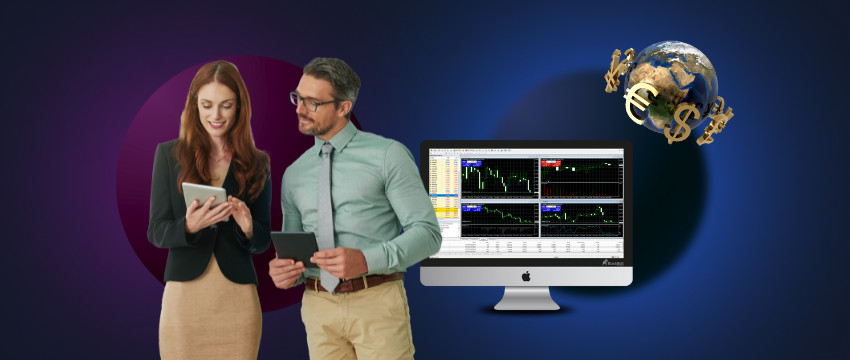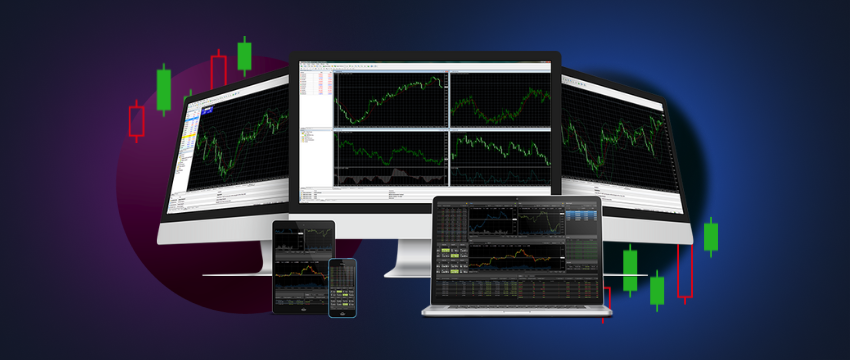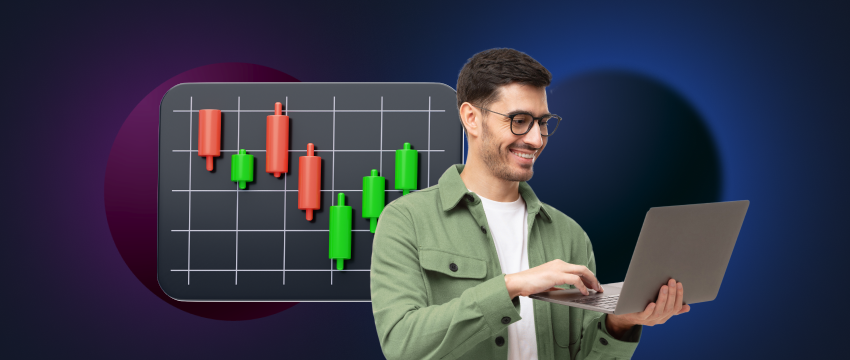Forex brokers explained: The key to unlocking global markets. A forex broker is a provider of financial services that gives traders a trading platform to purchase and sell foreign currencies.
In addition to financial services companies that trade on behalf of investment banks and other institutional clients, forex brokers also serve retail currency traders who speculate on the direction of currencies.
Another name for a forex broker is a currency trading broker or a retail forex broker.
Forex broker: From institutions to online retail traders
The foreign exchange market expanded significantly following the United States’ withdrawal of the Bretton Woods agreement pertaining to the USD’s convertibility in gold in the 1970s. Due to the high transaction costs and accessibility issues, it was initially only accessible by institutional individuals.
However, with the development of the Internet and online trading, everything changed. Retail traders can now participate in the world’s largest financial market, foreign exchange, thanks to forex brokers.
As a result, a forex broker serves only as a middleman between the trader and the market. The company provides market quotes through various liquidity providers, and its trading platform reflects the best conditions offered to clients. It usually charges a fee or commission for this.

What are the types of forex brokers?
There are two types of forex trading brokers: dealing desks, also known as market makers, and non-dealing desks.
Dealing desk
The foreign exchange broker effectively creates a market by copying the interbank market quote and providing its clients with the prices.
Non-dealing desk
The foreign exchange broker sends orders to the liquidity provider, who then offers retail clients the best quote from the liquidity pool.
Brokers set up similarly to non-dealing houses frequently provide STP (Straight-Through Protocol) or ECN (Electronic Communication Network) execution.
Different account types exist depending on the brokerage type. Examples include fixed spreads, variable spreads, STP accounts, ECN accounts, and more.
The most remarkable aspect of today’s forex brokers, however, is that they have evolved beyond simply being a forex brokerage.
These days, forex brokerage accounts provide access to a number of global financial markets in addition to the currency market (e.g. 商品 – oil, gold, silver; 指数 – Dow Jones, S&P 500; various other CFDs).
More significantly, traders can access each of these markets using a single trading account. More trading opportunities and additional options for portfolio diversification are an advantage for traders.
Understanding forex brokers: major currencies & how trades work
Most foreign exchange transactions take place between the currencies of the largest economies in the world. The Canadian dollar (CAD), the Swiss franc (CHF), the Australian dollar (AUD), the New Zealand dollar (NZD), the Japanese yen (JPY), the Euro (EUR), the pound sterling (GBP), and the U.S. dollar (USD) make up these countries and their currencies.
The majority of brokers let their clients trade in different currencies, including those from developing nations.
A trader who uses a forex broker starts a trade by purchasing or selling a pair of currencies, and ends the trade by purchasing or selling the same pair. To convert euros into US dollars, for example, a trader buys the EUR/USD pair. This is the same as buying euros with US dollars.
In order to close the trade, the trader sells the pair, which is the same as using euros to purchase US dollars.
The trader profits if the exchange rate is higher when the trade is closed. Should it be lower, the trader loses money.
How forex brokers profit: spreads & additional fees
Each instrument has two prices: the ask price and the bid price. One of the ways the forex broker makes money is by charging a spread, which is the difference between the two prices.
Depending on the kind of trading account, this fee—which is assessed for granting market access—can be either fixed or variable.
In contrast to a foreign exchange broker with a single liquidity provider, a forex broker with access to multiple liquidity providers can provide its clients with more competitive spreads.
Traders can only use the ask price and the bid price when buying or selling. As a result, they pay the forex broker’s spread as a fee when they open and close a position.
Spread: A Key Revenue Source
The spread between the bid and ask prices of the Euro-US dollar pair, for instance, is 00012, or 1.2 pips, when they are 1.20010 and 1.20022, respectively. The forex broker will earn the spread when a trader opens a position at the ask price and then closes it at the bid price.
Commissions: An Additional Revenue Stream
There are also commissions, which vary according to the kind of trading account. In certain instances, each trade carries a commission that is directly correlated with the volume of trades; the larger the volume, the larger the commission.
Wider spreads are usually offered by that kind of account, but in other situations, there is no commission applied to the 取引口座.
Additional fees are charged by certain brokers. Brokers may charge a monthly fee for trading software access, or they may charge a fee for each transaction. Some charge extra to exchange special items, like exotic options.
Although there are other ways for forex brokers to profit, スプレッド and/or commissions are the two most common.
Because of the strong competition among forex brokers, many have been lowering their fees in order to stay in business. Beyond the spread, a lot of brokers now provide free or extremely cheap trading fees.

How to choose a forex broker
Choosing the right broker is crucial because the forex market is large and constantly changing. The following are the main things to think about:
Margin & leverage
Verify that the leverage being offered fits your level of risk tolerance. Be aware of the risks that come with using a lot of leverage.
Commissions & spreads of forex broker
Examine fees and spreads. Particularly for regular traders, a tight spread lowers trading expenses.
Forex Broker Costs
Seek out brokers who offer quick processing times and minimal or no deposit or withdrawal fees.
Trading platforms
Choose brokers that provide proprietary options with cutting-edge tools or dependable platforms like MetaTrader
Hours of trading
Select a broker that offers 24-hour trading and weekend options if necessary, as forex is open around-the-clock.
Availability of markets
Choose a broker that offers major, minor, and exotic options in addition to a variety of currency pairs.
Educational resources
To help you improve your skills, a reputable broker provides free resources like webinars, courses, and demo accounts.
Forex Broker & Client support
Fast problem solving, particularly during trades, requires dependable, round-the-clock assistance.

T4Trade: A trusted forex broker
T4Trade is a reputable international broker that provides traders of all skill levels with an easy-to-use and accessible trading environment.
You can diversify your portfolio with T4Trade’s extensive selection of tradable instruments, including stocks, commodities, 外国為替, indices, and more.
Their cutting-edge trading platforms, competitive spreads, flexible leverage, and extensive educational materials make trading easy and effective.
With a dedication to customer satisfaction and round-the-clock multilingual customer service, T4Trade guarantees a reliable and secure trading environment that is customised to your requirements.
T4Trade gives you the resources and assistance you need to accomplish your trading objectives, regardless of your level of experience.
Disclaimer: This material is for general informational and educational purposes only and should not be considered investment advice or an investment recommendation. T4Trade is not responsible for any data provided by third parties referenced or hyperlinked in this communication.




